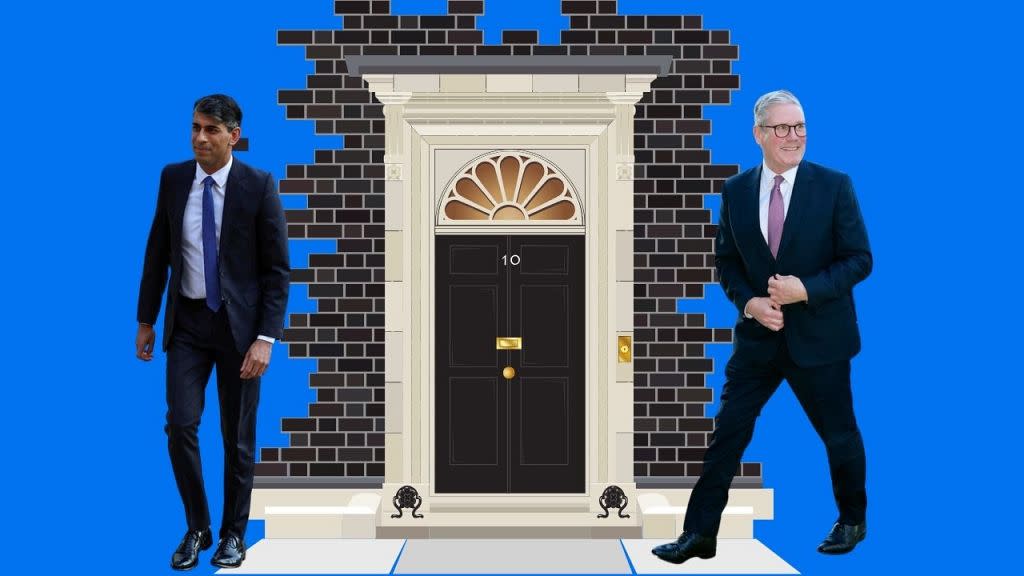UK election results 2024: winners and losers in London

The UK Labour party is on track to win a remarkable 410 out of the 650 of seats in the House of Commons, handing the left-wing party one of the biggest majorities in its history, according to an exit poll produced by Ipsos.
The result, if confirmed, represents a crushing defeat for the Conservative party that has led the country since 2010, under five separate leaders.
If confirmed, the result would mean Keir Starmer – the former public prosecutor who replaced Jeremy Corbyn as Labour leader in 2020 – could become Prime Minister as soon as Friday.
It’s bad news for incumbent Rishi Sunak, who may be called on to resign as leader of a party that’s perhaps endured its worst ever election result.
Political tumult
The landslide would draw a line under a tumultuous five years in British politics.
It’s a period that saw the pandemic, the war in Ukraine and high inflation – and no fewer than three Conservative Prime Ministers, two of whom resigned in major scandals.
The shortest-lived of those, Liz Truss, served for just 49 days, after her unfunded tax cuts sent financial markets into turmoil.
Boris Johnson – who won the last December 2019 election with a healthy 80 seat majority – was pushed out after it was revealed he’d broken his own Covid lockdown laws by hosting parties at Downing Street offices.
Polls have been predicting a Labour victory since the election was called in May, if not before – but the scale of the wipeout wasn’t known.
If exit poll predictions of Conservatives gaining just 131 seats come true, it’s their worst result since at least 1918, when the dominance of the two modern-day parties began.
Individual constituency results will be announced between now and tomorrow morning – determining the fates of individual MPs.
According to some polls, even the likes of Sunak and Truss are at risk of losing their seats, despite winning robust majorities in 2019.
What does the Labour victory mean?
Starmer's win means he'll be asked to form a government and appoint ministers. His significant majority in the House of Commons also means he'll be able to push legislation through, which requires a simple majority.
Westminster's lower chamber has more powers than the House of Lords, which mostly comprises life appointees whose amendments can be overruled.
The change of government won’t mean any U-Turn on Brexit, as the new Prime Minister seems unwilling to repeat the fractious political wars over Europe that dominated the last decade.
Starmer is familiar with the topic, having served as shadow Brexit minister under Corbyn.
But he’s ruled out rejoining the EU’s single market and customs union, or reintroducing the free movement of people.
Some analysts are still hopeful the new government will bring extra stability or warmer EU relations in particular policy areas.
In his new role, Starmer would likely meet many of his European counterparts at a NATO Summit in the US on 9-11 July, before hosting the European Political Community on 18 July.
Familiar face in a starring role
A familiar Brexit face has played a key role in this election – Nigel Farage.
Farage served for 20 years as MEP for the eurosceptic UK Independence Party, whose electoral success may have had a decisive impact over the decision to hold the 2016 referendum.
The exit poll predicts Farage's new Reform party will gain around 13 seats – potentially making Farage a Westminster lawmaker for the first time after numerous unsuccessful attempts.
Even in constituencies it didn’t win, Reform may have drawn votes away from the Conservatives, making a bad situation worse for Sunak.
Follow all our coverage on the live blog.
UPDATE: this story was updated at 11:24 with exit poll results.

 Yahoo News
Yahoo News 
